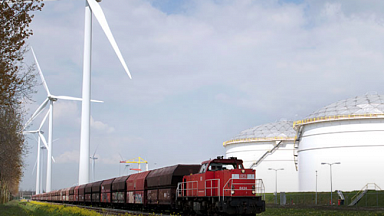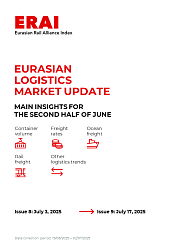Halfway through 2024, and Statistics Netherlands (CBS) has announced that the preceding year had been less than exemplary for the country’s rail freight, recording a 12.5% year-on-year volume decline, with a little over 39.3m tonnes of goods moved in the 12-month period.
Containerised volumes dropped off 11.5% year on year, with a loss of more than 2m tonnes, from just shy of 20m tonnes in 2022 to 17.3m tonnes last year, with CBS noting that the country had particular struggles when it came to exports.
Sources within the sector said much of the decline could be attributed to the continuing post-Covid normalisation process, but the disappointing figures have coincided with a difficult period for European rail freight as it looks to sell itself as the green alternative to trucking.
Over the past year, sources have made clear that rail and barge offers one of the quickest and easiest routes to transitioning from carbon-fuelled road fleets — with others stressing that, amid the global truck driver shortage, it should be something of an easy win.
But there appear signs of government resistance to rail freight superseding road: Angela Merkel’s former party, the German Christian Democrats, having stated that road will remain the main freight mode in Germany.
One pro-rail and -barge source told The Loadstar governments needed to be moving more onto alternative modes, but stressed that the messaging needed to make clear there was not an agenda to remove road haulage — «road will be pivotal for final mile».
Struggles in Europe are not replicated, however, in Russia, which has seen rail serve as a key artery amid western sanctions and its efforts to build a healthy war economy, with volumes to and from China up 20% over the first five months of 2024.
Russian Railways reported the year-on-year spike last week, with Railfreight.com reporting that volumes amounted to 16.8m tonnes, of which 15.6m were Russian exports heading to China, while just 1.2m were imports from China.
Despite the positive numbers, precise details of what made up the volumes have been less forthcoming, although press coverage has suggested much of the flow out of Russia has comprised coal exports.
Meanwhile, the Polish government has appeared to open the door for the return of Ukrainian rail freight operators across Europe by granting Ukrainian Railways a licence to operate within Poland.




